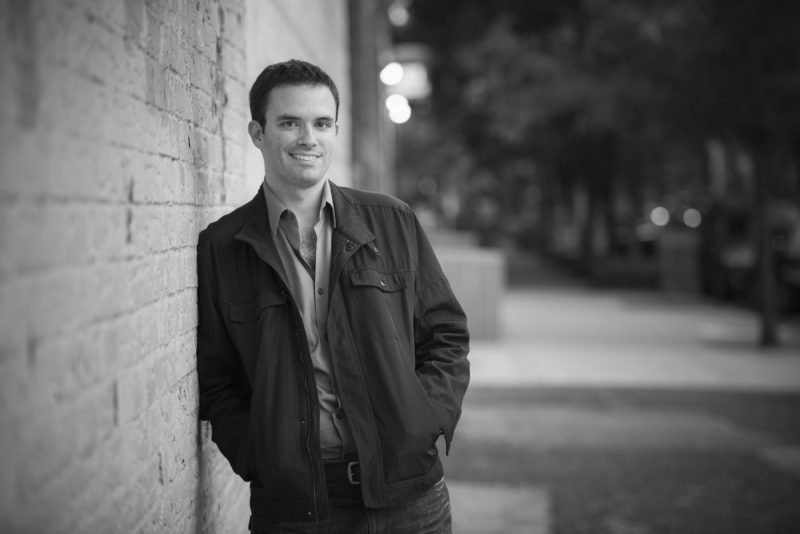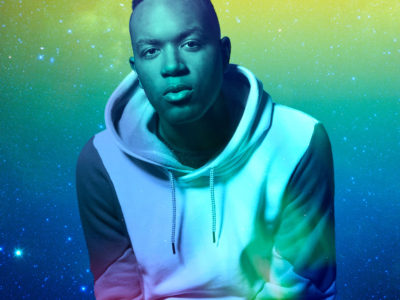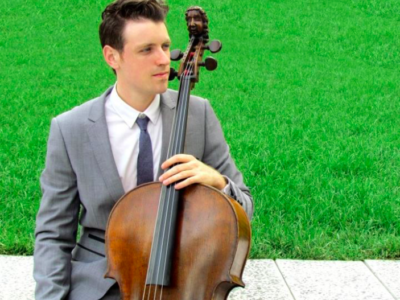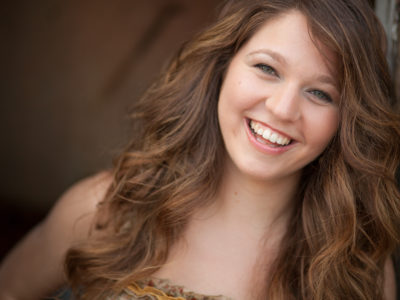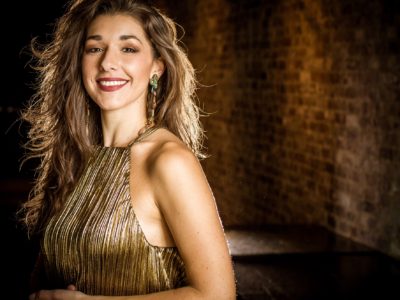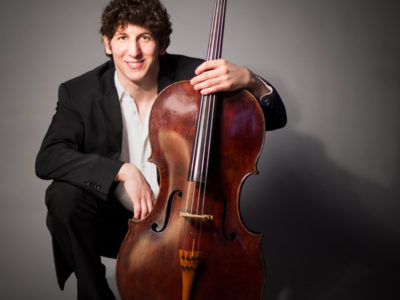Meet our artist of the week, Pianist Ben Laude! Come hear Ben, who will be featured along side Mezzo Soprano Maya Lahyani, Cellist Elad Kabilio and actor Ido Rozenberg in MusicTalks’ upcoming concert Debussy and the Moon @Interface on October 24th!
Ben has been performing with MusicTalks since our first season so we were especially excited to sit down with him and learn more!
MT: What was your first exposure to classical music, and how did you decide to pursue a career in it?
Ben: My earliest exposure to classical music was when I was a child, hearing my dad play the piano, often after hours. He’s a chemist by trade, so piano was an amateur pursuit, and—as I remember it—his repertoire consisted of exactly two pieces: the first Chopin Nocturne and the first page of Beethoven’s Pathetique Sonata. Given that he had burned off all the feeling in his fingers after many years spent handling hazardous chemicals, I doubt he had a very sensitive touch. No matter, to a four year old he sounded like Rubinstein.
It wasn’t for another decade or so that I entertained the idea of pursuing music as a vocation. In high school I began studying with a new teacher, Eric Hicks, in Round Rock, Texas. His influence was considerable. While my hormonal preteen self had already begun sensing music’s emotional power a few years earlier, it was Hicks who not only disciplined my practice habits and dramatically improved my technique, but also awakened me to the rich body of piano literature that fast became an obsession. By the end of my junior year of high school, there was no longer any question what I wanted to do with my life.
MT: What are some of your favorite ensemble formations to perform in?
Ben: Conservatory pianists tend to spend too much time at the instrument by themselves and develop all kinds of deficiencies in ensemble settings. In short, they don’t listen. I was lucky that, while in college at Rice University, practicing alone for too long made me so stir crazy I just had to start collaborating with as many other musicians as I could find: in duos with string players, in trios and quartets, with brass and wind players, with other pianists who were playing concertos, with every individual voice type and even with the entire Rice Chorale.
I cannot pick a favorite among these, but I will say that the most unique and informative ensemble experience was one that would come years later after I had gotten to New York when I started collaborating with dancers on a regular basis. In many cultures, there is a single word for both ‘music’ and ‘dance’, as the two have long been considered inseparable. Rehearsing with dancers taught me why. Music, whatever else it might be, is at its core a representation of physical motion. Having to respond to the force of gravity on a ballet dancers’ body made me much more attuned to this when playing with others. It has even led me to start approaching solo music as ensemble music: in its contrapuntal textures, in the relationship between harmony and melody, and especially in the relationship between rhythm and meter, soloists—especially pianists—should always be accompanying themselves in a deep sense.
MT: How would you describe an ideal concert setting?
Ben: Honestly, I hate the traditional classical concert setting and try to avoid it. I will only attend if a friend is playing, or if someone invites me. It has never been pleasurable for me, more or less for reasons Glenn Gould articulated a half-century ago: unlike a movie theater, whose bright screen and surrounding darkness allows you to feel alone with the film, the classical concert hall is illuminated. You can feel the presence of all these strangers around you, each doing their best to adhere to the norms of quietude and respect before the great art being made in front of you. Then there is the performer or ensemble, whose activity is designed to exist for its own sake— as if it it could be accomplished in the same fashion even if the audience disappeared—and that’s just alienating, even kind of creepy. Like Gould, I feel like a voyeur sitting amongst fellow perverts peeping in at someone who is having this intensely private experience with a beautiful piece of music. I simply can’t get absorbed in the music when I’m in this environment. And, to be frank, I’m a little suspicious of people who can.
So, to put it simply, I prefer live musical experiences that are everything this traditional classical concert ritual is not. My ideal concert setting is in my apartment, with a few dozen friends and potential friends sitting and standing wherever comfortable, drinks in hand and guacamole somewhere nearby, and a small space towards the center of this multitude where every now and then the various conversations taking place are momentarily suspended by a few guests picking up instruments and beginning to play Bach, or their own arrangement of Billie Jean, or whatever it may be. Suddenly, an audience emerges out of an otherwise fluid and convivial setting, and everyone sits in rapt attention, absorbed in every detail of the music itself. In a perfect world, this kind of thing would just be going on every night in someone you know’s living room.
MT: who would you choose to play with given the opportunity?
Ben: I’ve always wanted to perform some of the Goldberg Variations with a really talented and creative beatboxer, someone like Beardyman. And I think he is just insane enough to want to try it out with me.
MT: What are some non music related special interests/talents that you have?
Ben: As you can probably tell from my verbose responses, I like to write and I try to do it every chance I get, whether the subject matter is serious or silly. My friend Isabel Hagen and I run a satirical classical music website that provides plenty of opportunities for the latter, and I have occasionally been known to join her at bars around town doing stand-up comedy routines at open mics. The serious stuff stems from my interest in politics, especially in understanding and engaging with pressing social issues from a historical and philosophical dimension. My interest in these areas complements my musical interests: I am rather obsessed with the fact that our society is brimming with antagonisms inherited from history that have driven its subjects towards unmanageable forms of individualism and asocial ways of thinking and acting, while at the same time there exists this human practice called music that in its best moments seems to herald a condition of resolution, of mutual aid, of camaraderie and cooperation, that otherwise eludes the current political and economic order. I suppose, then, that I have a “non music related” interest in music itself, insofar as it keeps alive hope for a better world. Also, I think I have a pretty good jump shot.


